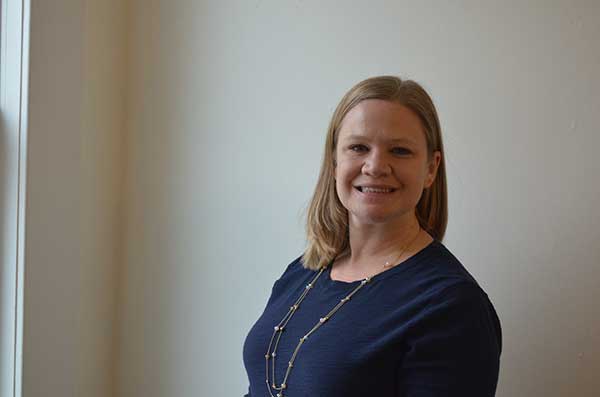Tiger Woods. Michael Phelps. Barbara Walters. Bruce Willis. Marilyn Monroe. Joe Biden. Samuel L. Jackson.
What do all of these famous people have in common?
Each of them was able to overcome a speech disorder. Many of them went on to reach great success – often in a career propelled by their voice and speaking ability.
Nearly 1 in 12 (7.7 percent) of U.S. children ages 3-17 has had a disorder related to voice, speech, language, or swallowing in the past 12 months. The good news is that many of these issues can be overcome with the help of a speech language pathologist.
In this month’s blog post, we sat down with Sarah Coty, MS, SLP/CCC, speech/language pathologist at the Wright Psychology & Learning Center, to learn more.
What does a speech/language pathologist do?
Speech therapists help to diagnose and treat disorders of language, fluency, articulation, voice and swallowing. I primarily focus on language, fluency and articulation in the children I work with. We also work with children on social language and pragmatics – how we interact conversationally, how we read body language, etc. Sometimes even those children with appropriate receptive and expressivelanguage skills can struggle with social language.
What are some signs parents can look for that may indicate their child could benefit from speech/language services?
In infants and toddlers, we’re concerned if they are not responding to sounds, aren’t babbling, and toddlers who aren’t using words (we look for about 15-25 words at 18 months) or not putting words together by age two. Sometimes we also see early issues with rhyming and syllables.
As they get older, we see kids who have difficulty understanding what you’re saying, or they take longer to respond to any type of oral information, using sentences that don’t appear as long as their same age peers, difficulty finding certain words, putting together sentences or repeating sounds or words when talking.
We could also see difficulty with social cues, misinterpreting body language and difficulty in reading non-verbal cues.
How do you know when to intervene? Or if the child is just a “late developer?”
If your gut tells you something’s wrong, you should talk with a professional. A screening by a professional can help you pinpoint whether it’s something that’s typically developing or needs to be monitored or further evaluated.
Does early intervention help?
Early intervention is better. It’s the key to faster progress – a better outcome, sooner.
Why is it important to address speech/language issues in kids?
Language is the foundation for most everything – daily interactions, vocabulary, sentence structure, even other subjects in school like reading, writing, and math.
These skills build on each other – if you’ve got a break down in an early skill, it can cause more issues down the road.
Are there any success stories or proud moments from your career?
I worked with a child who had a severe phonological disorder. Kids with these issues, who struggle with how to pronounce sounds, tend to hesitate to talk to people, afraid they won’t be understood.
It was an exciting day for her when she finally ordered for herself at a restaurant because she felt confident enough the server would understand her.
That’s what it’s really about to me, helping them gain their confidence.
I also love to hear, down the road, when a child or parent talks about speech services they’d received in the past and people are surprised – they never would’ve guessed that child had therapy because they’ve overcome those difficulties.
Interested in learning more about speech/language services offered at The Wright Psychology & Learning Center? Contact us at (502) 807-9551 or WrightPsychology@gmail.com.


